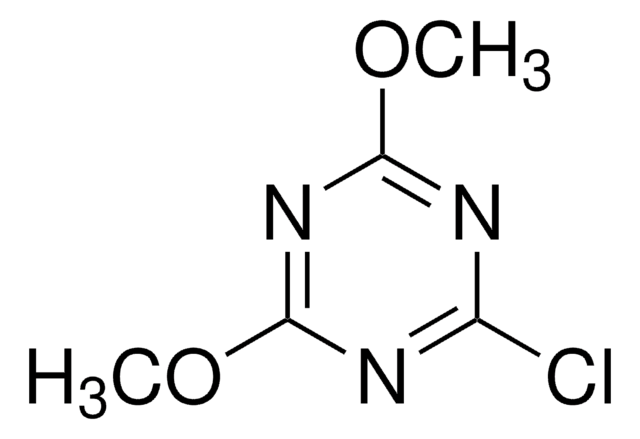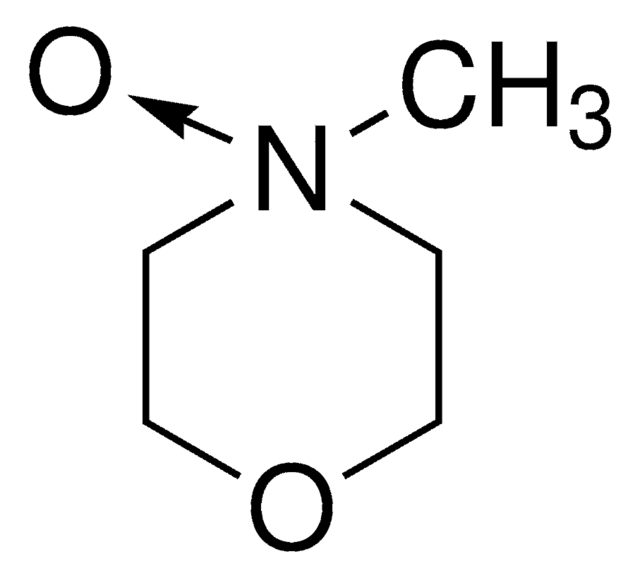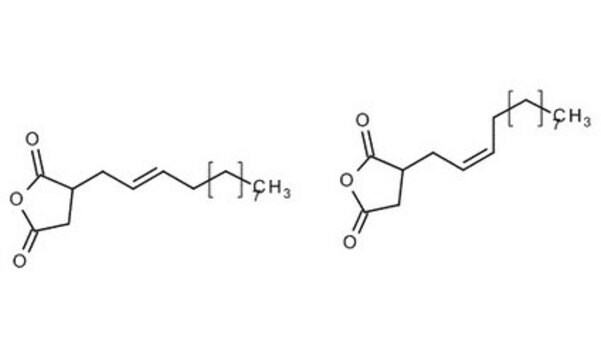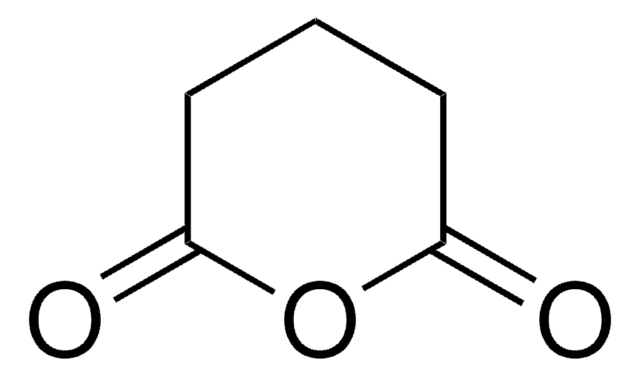286508
Palmitic anhydride
97%
Synonym(s):
Hexadecanoic anhydride
About This Item
Recommended Products
Quality Level
Assay
97%
mp
61-64 °C (lit.)
functional group
anhydride
ester
SMILES string
CCCCCCCCCCCCCCCC(=O)OC(=O)CCCCCCCCCCCCCCC
InChI
1S/C32H62O3/c1-3-5-7-9-11-13-15-17-19-21-23-25-27-29-31(33)35-32(34)30-28-26-24-22-20-18-16-14-12-10-8-6-4-2/h3-30H2,1-2H3
InChI key
QWZBEFCPZJWDKC-UHFFFAOYSA-N
Looking for similar products? Visit Product Comparison Guide
General description
Application
Storage Class Code
11 - Combustible Solids
WGK
WGK 3
Flash Point(F)
Not applicable
Flash Point(C)
Not applicable
Personal Protective Equipment
Choose from one of the most recent versions:
Certificates of Analysis (COA)
Don't see the Right Version?
If you require a particular version, you can look up a specific certificate by the Lot or Batch number.
Already Own This Product?
Find documentation for the products that you have recently purchased in the Document Library.
Customers Also Viewed
Our team of scientists has experience in all areas of research including Life Science, Material Science, Chemical Synthesis, Chromatography, Analytical and many others.
Contact Technical Service











